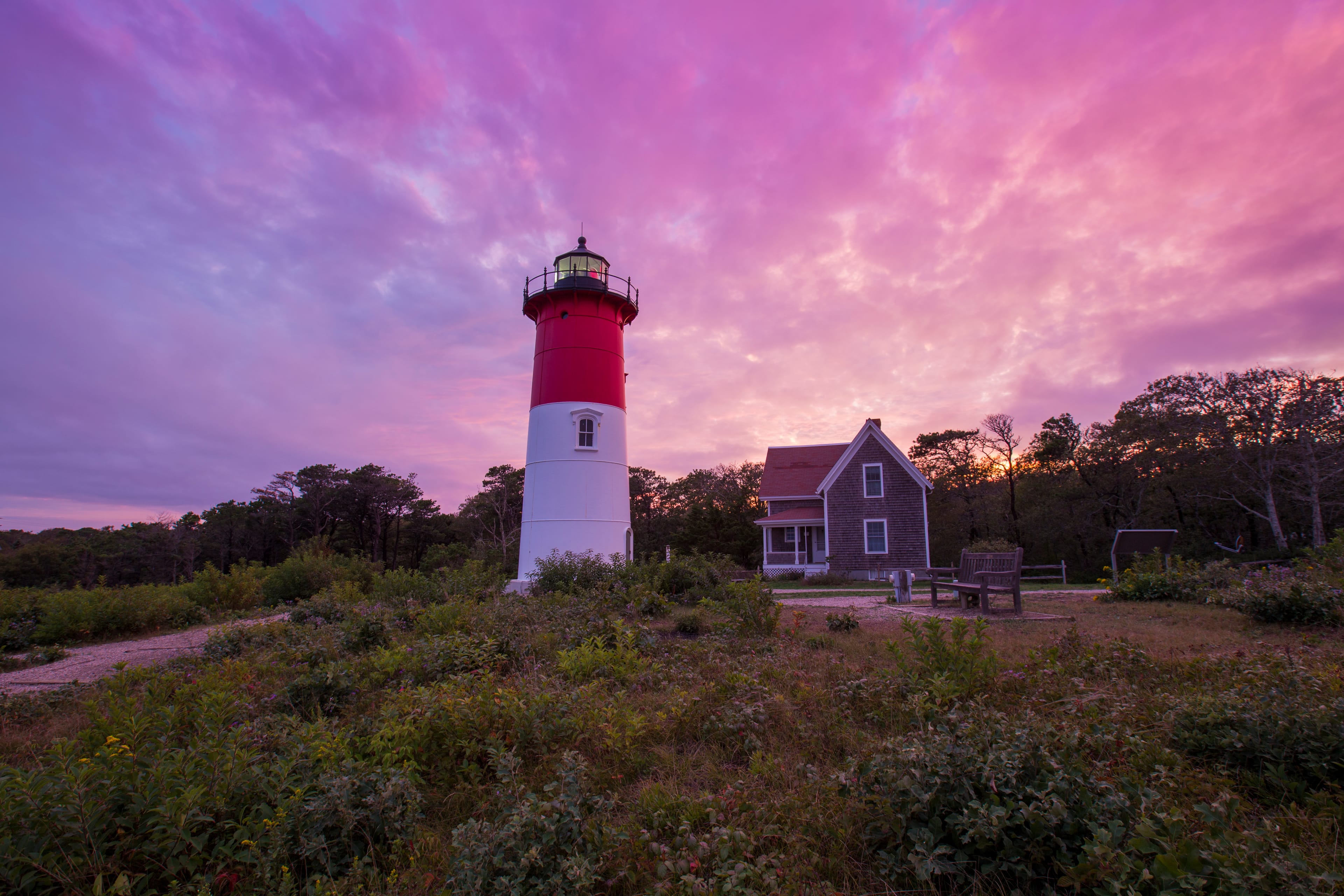CAPE COD'S RELOCATED LIGHTHOUSES
The Cape is forever changing, even where its towering beacons stand.

NAUSET LIGHT in Eastham | Getty Images
Land on the Cape and Islands is forever being reshaped by the ravages of water and wind. Lighthouses, steady sentinels though they appear, often wind up in need of rescue from the landscape’s precarious edges.
NAUSET LIGHT

The current Nauset lighthouse was built in Chatham in 1877 and moved to Eastham in 1923. It was installed 200 feet from the cliff’s edge, but weather and tides chipped relentlessly away. By the time the lighthouse was moved 300 feet in 1996, the cliff had loomed less than 35 feet away.
HIGHLAND LIGHT

Edward Hopper completed the painting Highland Light, North Truro in 1930, the first of many summers he spent in Truro. Though the lighthouse has moved, the view remains similar to his rendering.
The original lighthouse at this location—positioned more than 500 feet from the cliff’s edge—was the first on Cape Cod when George Washington commissioned it in 1797. Today’s brick structure was erected in 1857, and by the early 1990s, it stood less than 100 feet from the dropoff. In 1996, the lighthouse was moved back 450 feet.
GAY HEAD LIGHT

It took two and a half years of planning and three days of painstaking movement along a steel track to shift the 400-ton building 129 feet back from the crumbling reddish cliffs in 2015. The lighthouse had stood in its previous spot since 1844 and is expected to remain safe in its new location for 150 years.
SANKATY HEAD LIGHT

Ever since the lighthouse was built in 1849, the nearby bluff has been rapidly eroding. When the ’Sconset Trust gained ownership in 2007, only 68 feet separated Sankaty Head Light from the bluff’s descent. The trust had the lighthouse moved; its new location affords it some 267 feet’s security.

FIELD GUIDE
CAPE COD
Clam shacks and boatyards, oyster farmers and sailmakers, beaches and salty bike trails.






